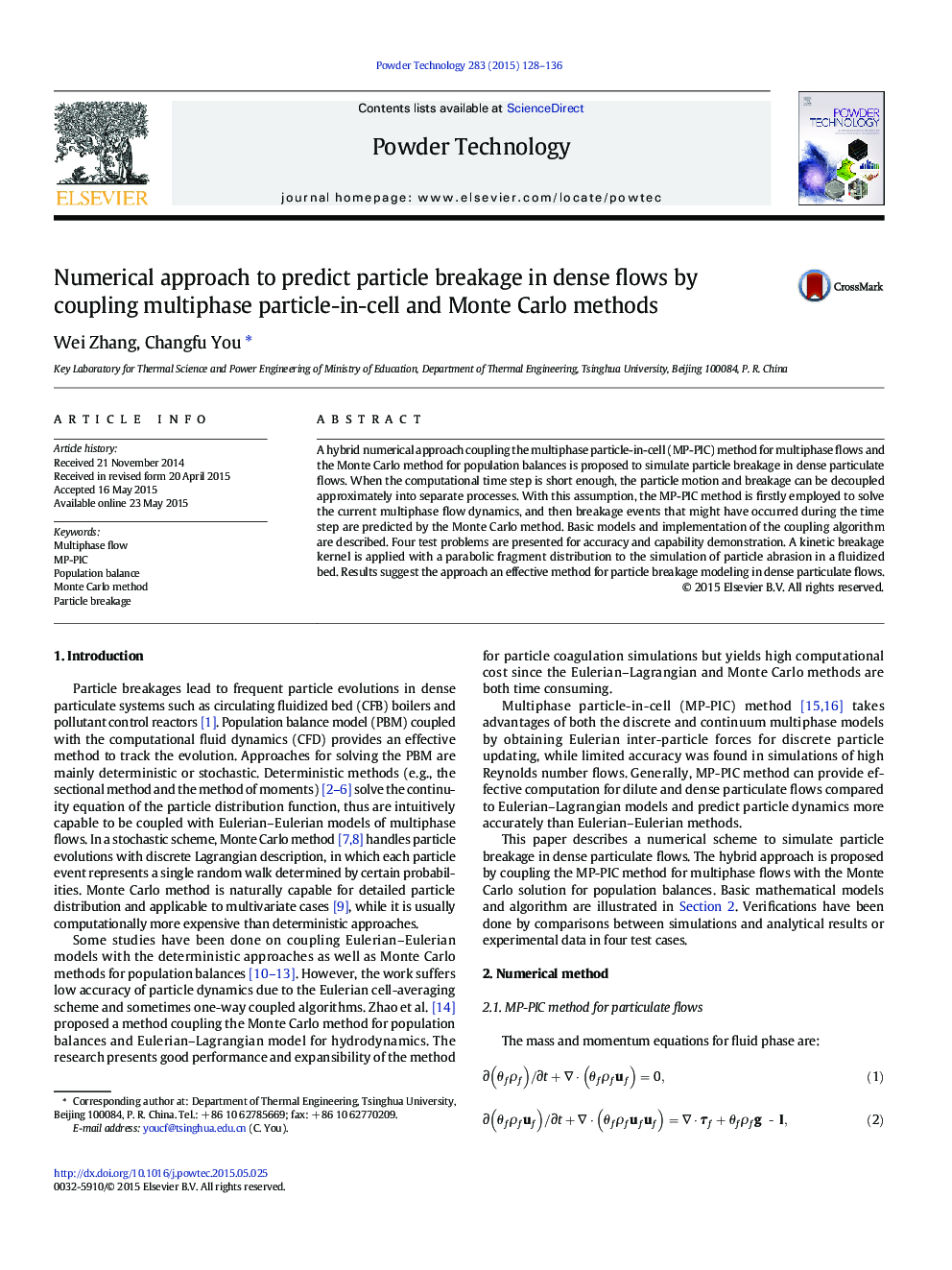| Article ID | Journal | Published Year | Pages | File Type |
|---|---|---|---|---|
| 235400 | Powder Technology | 2015 | 9 Pages |
•A hybrid method is proposed to predict particle breakage in particulate flows.•The approach couples MP-PIC and Monte Carlo methods.•It can handle a wide range of particle loads and polydispersed populations.•A coupling algorithm is implemented and tested in this study.•The effectiveness of the approach has been verified by four cases.
A hybrid numerical approach coupling the multiphase particle-in-cell (MP-PIC) method for multiphase flows and the Monte Carlo method for population balances is proposed to simulate particle breakage in dense particulate flows. When the computational time step is short enough, the particle motion and breakage can be decoupled approximately into separate processes. With this assumption, the MP-PIC method is firstly employed to solve the current multiphase flow dynamics, and then breakage events that might have occurred during the time step are predicted by the Monte Carlo method. Basic models and implementation of the coupling algorithm are described. Four test problems are presented for accuracy and capability demonstration. A kinetic breakage kernel is applied with a parabolic fragment distribution to the simulation of particle abrasion in a fluidized bed. Results suggest the approach an effective method for particle breakage modeling in dense particulate flows.
Graphical abstractAn algorithm coupling multiphase particle-in-cell (MP-PIC) method for multiphase flow and Monte Carlo method for population balances was implemented to predict particle breakages in dense particulate flows. Simulation of particle abrasion in a fluidized bed has been done to compare with experimental data for verification.Figure optionsDownload full-size imageDownload as PowerPoint slide
